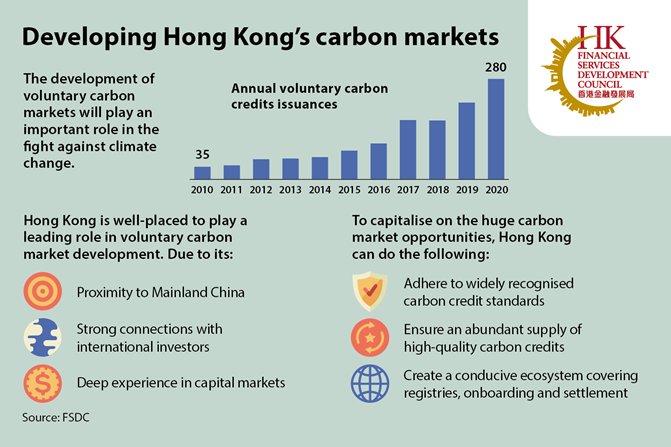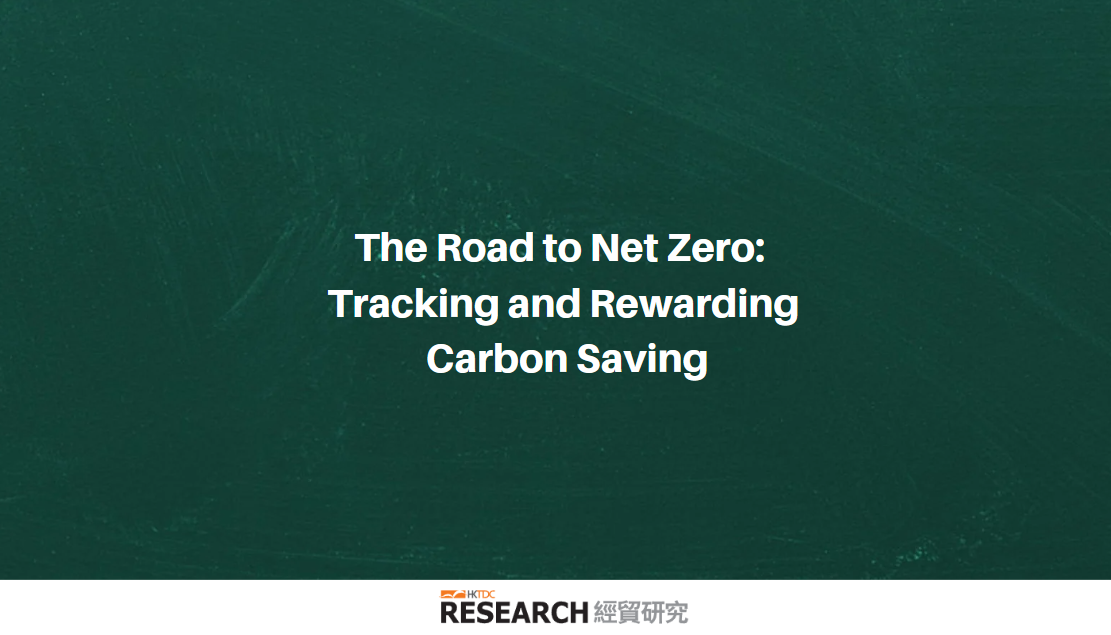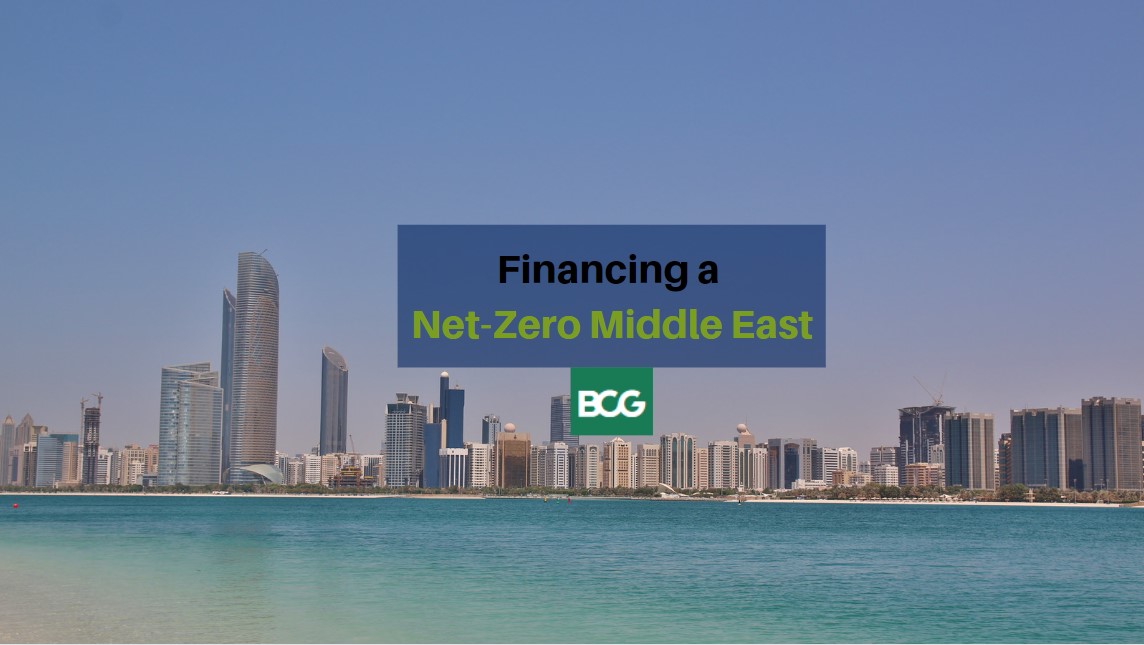Carbon markets in Hong Kong – working towards net zero
Carbon markets will play an important role in the fight against climate change. By trading carbon credits, businesses are able to effectively manage their greenhouse gas emissions. It is already a common practice in Europe and the US, while in Asia carbon trading is still at a relatively early stage of development.
The region is quickly catching up. China launched its national carbon emission scheme (ETS) in 2021, while in Southeast Asia, carbon markets are expected to produce significant economic benefits by the end of the decade. In Hong Kong, HKEX launched Core Climate in late 2022 – a new marketplace for climate-related products that highlights the city’s potential in carbon trading.
How Hong Kong can capture carbon market opportunities and contribute to the global journey to net zero is the subject of a recent research paper published by the Financial Services Development Council (FSDC) called “The Road to Carbon Neutrality: Hong Kong's Role in Capturing the Rise of Carbon Market Opportunities”1. Its longstanding status as a financial superconnector was a prominent theme.
“Hong Kong’s role will be seeing how we can connect China with international markets, helping to align different standards for both international and domestic participants, and enabling people to buy carbon credits both in Mainland China and globally,” said Pat-nie Woo, Partner, Head of ESG Hong Kong, KPMG China.
The role of voluntary carbon markets
The FSDC research paper focused on the potential for voluntary carbon markets in Hong Kong. These are carbon markets where participants trade carbon credits voluntarily – typically businesses that want to offset their emissions. They contrast with compliance carbon markets where participation is mandatory, due to government regulation. Since compliance markets only account for 11% of global emissions2, the development of voluntary carbon markets will be essential to achieve net zero.
“The market growth of voluntary carbon markets will become increasingly important, while it will also be essential to ensure the better grading of credit quality,” said Terence Chan, Chairman, Bay Area Capital Partners.
Despite their immense potential, carbon markets face several significant challenges. In the primary market, where project developers create and sell carbon credits to buyers, there are issues related to high upfront registration costs, as well as a long registration and approval process for credits.
Miranda Kwan, Director of Knowledge Solutions at SGS Hong Kong, highlighted some issues related to registration: “More and more companies want innovative solutions to reduce their carbon emissions, but there are often multiple registration standards to consider and it is sometimes not clear which is the most suitable for their projects, and it is also not easy to know whether a project is eligible to be verified.”
In the secondary markets, there is a lack of transparency on standards – such as the double counting of carbon credits, which undermines the integrity of the market, while there can also be a lack of liquidity and supply of high-quality carbon credits.

Building on strong foundations
Hong Kong is well placed to play a leading role in developing voluntary carbon markets that have an impact in emissions reduction in Asia and beyond. Its proximity to Mainland China, strong connections with international investors, and deep experience in capital markets, are all strengths that can be used to create effective carbon markets. In order to capitalise on the huge opportunities, the FSDC recommends several areas that can act as the foundation for a dynamic carbon market ecosystem.
Adhering to widely recognised carbon credit standards is one priority. In particular, the exchange should accommodate carbon credits generated from projects verified by standards that are acknowledged by international stakeholders. Harmonising the various standards will be key to establishing an efficient and widely recognised carbon market in Hong Kong.
“Hong Kong can use its financial advantage, as well as its regional advantage, to act as a hub for the different standards. We can bring them together and let market practitioners decide which ones should be welcomed by the market,” said Ivan Li, Executive Director, Institute for Carbon Neutrality, China Galaxy International Financial Holdings.
Another area Hong Kong should focus on is ensuring an abundant supply of high-quality carbon credits. Accepting internationally recognised carbon credits to be listed in the city is a first step that will result in attracting even more quality projects and asset owners to the platform.
More broadly, Hong Kong will need to cultivate a conducive ecosystem that covers everything from the creation of credits to the registries, onboarding and post-trade settlement. Essential components will include a marketplace that matches projects with exchanges, the introduction of rating agencies, risk management tools, and the initiation of custody, clearing, and settlement services for carbon credits.
The road to net zero
The launch of Core Climate is an important first step in Hong Kong’s journey to becoming one of the world’s leading financial centres for sustainability. To build on this foundation, the city must ensure that it adopts the right standards, has a good supply of credits, as well as a broader ecosystem to support the entire trading cycle. With all these in place, Hong Kong will likely play a major role in the world’s transition to net zero.
1 FSDC
2 Ibid






















































First, please LoginComment After ~